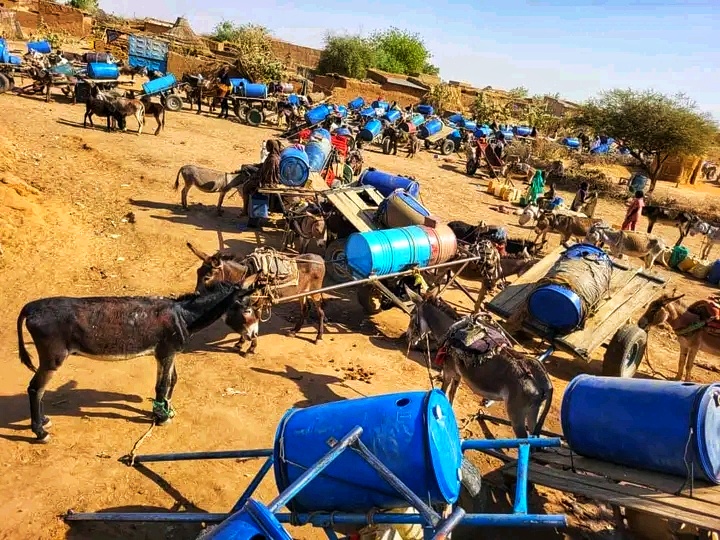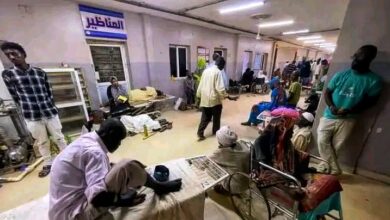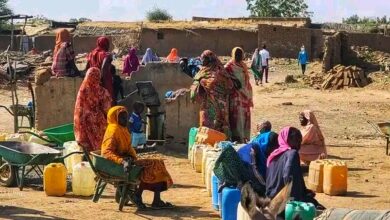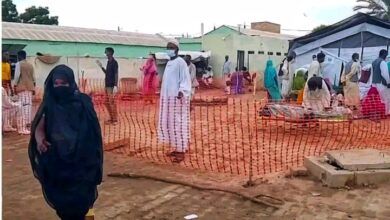War Continues to Worsen Disease Outbreaks in Sudan Amid Collapse of Healthcare
Report by: Mohamed Ahmed Al-Asbat

Amid overwhelming humanitarian crises and deteriorating healthcare services, Sudanese citizens are living under dire conditions, facing a new and more deadly challenge: the spread of fatal epidemics such as cholera, dengue fever, and acute watery diarrhea. These outbreaks have resulted in thousands of infections and dozens of deaths.
The targeting of vital infrastructure—such as electricity and water stations—by the Rapid Support Forces (RSF) using drones has caused significant destruction. This has contributed to the spread of cholera, with over 3,000 cases and dozens of deaths reported across neighborhoods in the capital, Khartoum, and other states.
Citizens are enduring severe suffering, particularly due to the collapse of the healthcare sector, shortages of medications and IV fluids, rising treatment costs, and an inability to afford medical tests due to depleted savings.
Spread and Lack of Care
Az El-Din Hassan, a resident of Al-Fitehab, told the Mashawir platform, “Cholera and dengue fever have spread widely in the area, with increasing infections and deaths, while healthcare services are nearly non-existent due to the absence of medical personnel and a severe shortage of medicines and IV fluids. This has greatly worsened the residents’ plight.”
He added, “Several of my neighbors have died from the disease. Access to safe drinking water has become unaffordable for most families, as the majority of available water is contaminated and a source of cholera infection.”
He continued, “Every three days, we have to run the water pumping generator at a cost of 3,000 Sudanese pounds per household to afford fuel.”
Weak Health Response
Samia Hamdan, a resident of Old Omdurman, told Mashawir that “the epidemic outbreak is largely due to the repeated power outages that have affected water networks—caused by the targeting of major electricity stations across the country.”
Hamdan warned that “the outbreak may spread further, as hospitals and health centers are no longer able to handle the growing number of cases, while they also suffer from severe shortages of medicines and IV fluids.”
She added, “The number of cholera and dengue infections and deaths is steadily rising, signaling worsening conditions for Khartoum residents in the coming days.”
Lack of Medical Supplies
In a similar vein, Hatem Issa, a resident of Al-Thawrat area, told Mashawir that “IV fluids (drips) are extremely scarce in hospitals and health centers, with each unit now costing 40,000 Sudanese pounds. There are no IV stands available, forcing patient attendants to hold them for hours.”
He pointed out that “patients lie on the ground in harsh health and environmental conditions, with high temperatures and lack of drinking water. There are also no beds, tents, covers, diapers, or sanitary pads.”
Issa warned of the dangerous situation, noting the potential for patient attendants to contract meningitis, especially as daytime temperatures reach 40°C (104°F).
Health Efforts
Meanwhile, Minister of Health Haitham Mohamed Ibrahim stated that “cholera cases have reached 3,049 in Khartoum localities, with 57 reported deaths.”
He explained that “the fatality rate stands at 1.9% of total infections, with most cases concentrated in Salha (south of Omdurman), Umbada (west Omdurman), Jebel Aulia, and Karari.”
He confirmed that health authorities are holding daily morning and evening meetings to manage the crisis, and an emergency operations room has been established in collaboration with several organizations operating in Khartoum State.




